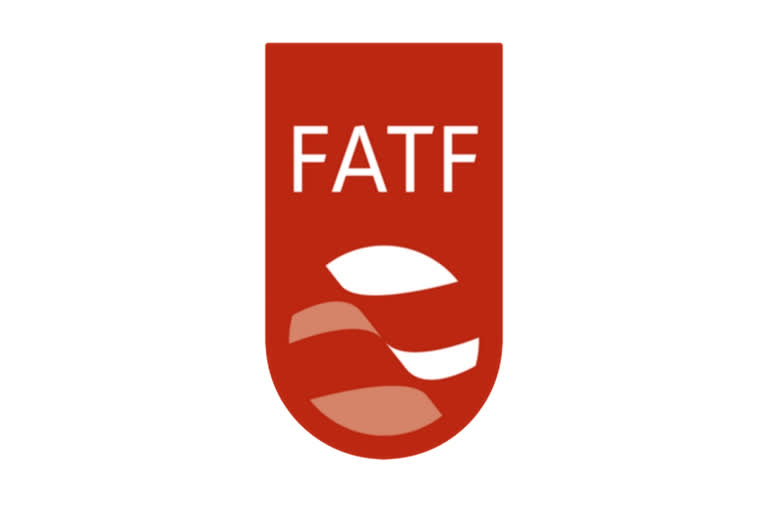New Delhi: The forthcoming meeting of FATF (Financial Action Task Force) from 13th-16th October in Paris is being anxiously awaited by India and Pakistan both as it is going to take a call on the latter’s inclusion in the Black List (formally called Expedited Enhanced Follow up Report List).
Pakistan, which has the dubious distinction of being in FATF’s Grey List continuously since 2012 with the exception of 2015-16, stares blankly at the strong possibility of joining the infamous company of North Korea and Iran in the Black List.
Established in 1989 in Paris at the initiative of G-7 countries as a measure to check money laundering and suggest action against countries and organisations involved in this nefarious practice, FATF has 37 member countries including India, all developed or emerging economies, and two regional organisations (European commission and Gulf Cooperation Council) understandably sans Pakistan.
Besides, it has nine associate members as its regional bodies like Asia Pacific Group. In addition, 23 organisations inter alia IMF, World Bank, Interpol, IDB, OECD have “Observer Status”. It is evident from this list that the recommendations of FATF are taken very seriously by all concerned organisations.
To check money-laundering and terror funding, FATF had, in the last decade, established 40 parameters for ‘Technical Compliance Rating’ and 10 for ‘Effectiveness on AMT/CFT (Anti money-laundering and combating financing of terror)’. Pakistan’s performance on the above parameters un till October 2018 was rated by the APG (Asia Pacific Group), the Asian arm of FATF, in September, the report of which was presented to FATF for its consideration in the forthcoming meeting.
The report found that of the 40 parameters for technical compliance, Pakistan was fully compliant on 1, largely on 9, partially on 26 and not compliant on 4. Out of the ten parameters for AML/CFT, Pakistan was low in nine and moderate in one-clearly very discomforting though the Pak Government and Establishment (acronym for Pak Army) are presenting an encouraging picture to their public by showing selective portions of the report.
The report makes it clear that ”With exception of some real action, Pakistan has not taken sufficient measures to fully implement the UNSCR 1267 obligation”. For example, Pakistan’s following the promulgation of Terrorist Activities Ordinance, February, 2018, heads of few terrorist organisations were arrested. However, since the life of the ordinance was 120 days, they were freed in less than four months and the order was neither tabled in the legislature for enactment nor was it further extended!
Now, what could be the consequences of blacklisting Pakistan by FATF?
The repercussions can be very severe for Pakistan economy which is already at the brinks of collapse. In nutshell, the following maybe some of its cascading effects-
- International Financial institutions followed by investors may pull out of Pakistan
- Foreign currency transactions and inward remittances will suffer a huge fall
- Stock market will crash
- Forex reserves will perish fast
- Currency will undergo a steep devaluation
- Inflation will rise sharply followed by serious public unrest
- Sanctions might be placed on the countries trading with Pakistan. No more Lines of Credit will be available for the country
- Loans, aids etc might be stopped
- Trade will have a nosedive
It is clear that Pakistan, already suffering from a tattering economy with a high inflation rate of more than 11% and a paltry Forex reserve of USD 17 billion, will witness its economy crumble. However, Pakistan, already attributing FATF’s pressure to India’s propaganda war (as the latter is a co-chair of APG), might see a way out of this catastrophe with help of its ‘all-weather friend’ China who will not like its astronomical investment in Pakistan go down the drain without generating any returns.
The second reason for comfort for Pakistan might be that a Chinese banker, Xiang Ming Liu, has taken over as the new President of FATF for one year till next October. However, given China’s own problem of terrorism in singkyang province and its recent stand on the Azhar Masood despite Pakistan’s pleadings, it is unlikely that China will bail Pakistan out of the situation.
Whatever be the result of FATF meeting, it is clear that Pakistan will at least remain in the Grey List, if not placed in the Black for some more time and, as such, its woes are not going to end in the very near future.
Also read|US Senator calls for de-escalation of tensions between India, Pak



